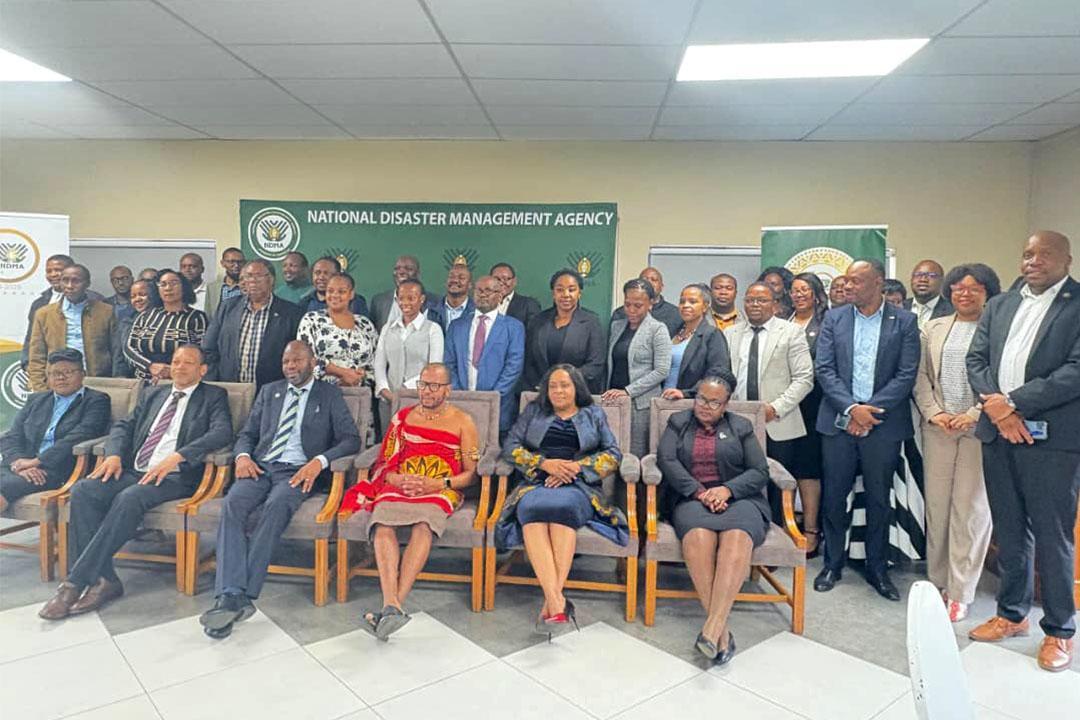Africa-Press – Eswatini. By funding resilience instead of disasters, Eswatini is laying the foundation for a safer, stronger, and more sustainable future, one where resilience defines development, and disasters no longer dictate It.
Those were the words of National Disaster Management Agency (NDMA) Chief Executive Officer Victor Mahlalela as Eswatini today, October 16, 2025, commemorated the International Day for Disaster Risk Reduction (IDDRR) under the global theme “Fund Resilience, Not Disasters.”
The event, hosted by the NDMA, brought together government ministries, development partners, civil society, and the private sector to reflect on a decade of progress in disaster management and to explore new approaches to strengthen resilience across the country.
In his remarks, Mahlalela said the discussions reaffirmed Eswatini’s commitment to building a nation that is better prepared to withstand natural and human-induced shocks. He highlighted that the country has made notable progress in developing the legislative and financial frameworks required to strengthen resilience.
“Today’s dialogue is about building resilience together. It has come out clearly from the discussions that Eswatini already has a number of legislative documents, regulations, and frameworks that support resilience,” he said. “Going forward, our focus is on ensuring compliance and monitoring of these instruments so that we achieve the level of resilience our country needs.”
Mahlalela also stressed that resilience-building cannot be separated from national development. “Resilience is a development agenda it cannot be divorced from it,” he said. “We must look at it holistically, ensuring that risk transfer and risk management become central to how we plan and invest as a nation.”
Over the years, Eswatini has faced various climate-related and socio-economic shocks that have underscored the need for proactive investment in resilience. The 2015–2016 drought, which severely affected food security and water supply, revealed the vulnerability of rural communities dependent on agriculture. Similarly, the 2022 floods in Lubombo damaged homes and disrupted livelihoods, reinforcing the importance of community-based preparedness.
Against this backdrop, the global theme, championed by the United Nations Office for Disaster Risk Reduction (UNDRR), aligns with Eswatini’s ongoing efforts to shift from reactive disaster response to proactive risk reduction and financing mechanisms.
Over the past decade, the NDMA, under the Deputy Prime Minister’s Office, has spearheaded national efforts to enhance preparedness and governance in disaster management. Guided by the Disaster Management Act of 2006, the agency has coordinated emergency responses while integrating prevention and resilience into national planning frameworks.
Among the key milestones achieved are the review of the Disaster Management Act, the development of a National Disaster Risk Financing Strategy, and the establishment of a National Disaster Fund to ensure predictable and sustainable financing for resilience.
The forthcoming Disaster Risk Management Bill of 2024 is expected to further strengthen institutional coordination, promote risk-informed development, and align Eswatini’s governance structures with the Sendai Framework for Disaster Risk Reduction and the SADC Disaster Resilience Strategy.
Already, the country is seeing positive results. Improved early warning systems are helping farmers in regions such as Shiselweni and Lubombo receive timely alerts that allow them to prepare for droughts or floods. Local disaster management committees have also been established to promote awareness and coordinate responses before disasters strike.
As the nation celebrates a decade of NDMA’s service, the message from this year’s commemoration was clear: investing in resilience saves lives, protects livelihoods, and safeguards development.
“When we fund resilience, we are not just preventing disasters we are investing in our future,” Mahlalela concluded. “We are ensuring that every development milestone we achieve is safeguarded from shocks, and that no setback can undo the progress we have made as a nation.”
For More News And Analysis About Eswatini Follow Africa-Press







